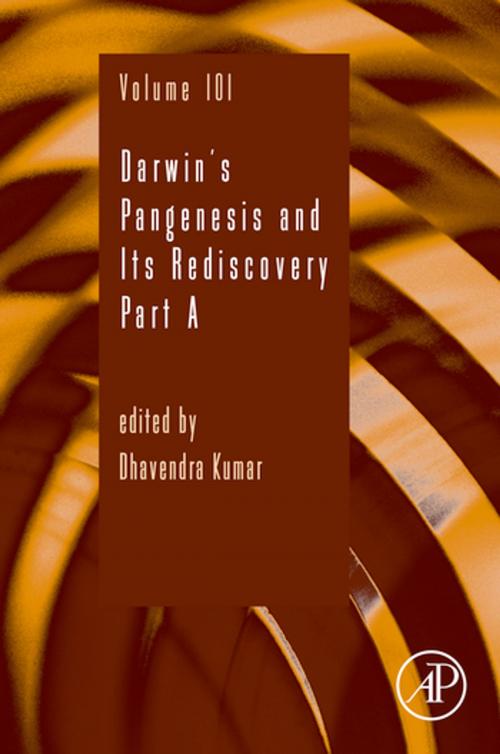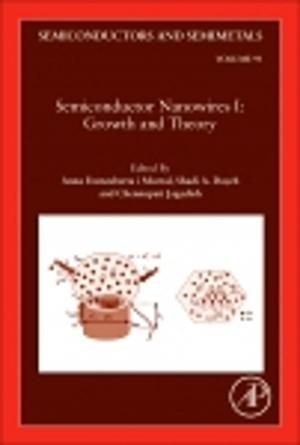Darwin’s Pangenesis and Its Rediscovery Part A
Nonfiction, Science & Nature, Science, Biological Sciences, Cytology, Genetics| Author: | Dhavendra Kumar | ISBN: | 9780128155509 |
| Publisher: | Elsevier Science | Publication: | July 21, 2018 |
| Imprint: | Academic Press | Language: | English |
| Author: | Dhavendra Kumar |
| ISBN: | 9780128155509 |
| Publisher: | Elsevier Science |
| Publication: | July 21, 2018 |
| Imprint: | Academic Press |
| Language: | English |
Darwin’s Pangenesis and Its Rediscovery Part A highlights the findings of Darwin's Pangenesis, an expanded cell theory and unified theory of heredity and variation that strengthened his theory of evolution and explained many phenomena of life. Now, new advances and the discovery of circulating cell-free DNA, mobile RNAs, prions and extracellular vesicles are providing new breakthroughs, thus increasing evidence on the inheritance of acquired characters, graft hybridization, and many other phenomena that Pangenesis suggests. Sections of note in this volume include the rationale, criticisms, influence and recent molecular evidence of Darwin's Pangenesis, as well as its relation to the inheritance of acquired characters, which is often included under the blanket term "transgenerational epigenetic inheritance."
- Presents a comprehensive approach to Darwin’s Pangenesis, which is so little understood that few have recognized its far-reaching importance, but seems today surprisingly modern
- Links Darwin's hypothetical gemmules with circulating cell-free DNA, mobile RNAs, prions and extracellular vesicles, shedding new light on an old theory
- Includes section on Darwin's Pangenesis in relation to the Lamarckian inheritance of acquired characters, a central debate in the history of genetics
Darwin’s Pangenesis and Its Rediscovery Part A highlights the findings of Darwin's Pangenesis, an expanded cell theory and unified theory of heredity and variation that strengthened his theory of evolution and explained many phenomena of life. Now, new advances and the discovery of circulating cell-free DNA, mobile RNAs, prions and extracellular vesicles are providing new breakthroughs, thus increasing evidence on the inheritance of acquired characters, graft hybridization, and many other phenomena that Pangenesis suggests. Sections of note in this volume include the rationale, criticisms, influence and recent molecular evidence of Darwin's Pangenesis, as well as its relation to the inheritance of acquired characters, which is often included under the blanket term "transgenerational epigenetic inheritance."
- Presents a comprehensive approach to Darwin’s Pangenesis, which is so little understood that few have recognized its far-reaching importance, but seems today surprisingly modern
- Links Darwin's hypothetical gemmules with circulating cell-free DNA, mobile RNAs, prions and extracellular vesicles, shedding new light on an old theory
- Includes section on Darwin's Pangenesis in relation to the Lamarckian inheritance of acquired characters, a central debate in the history of genetics















